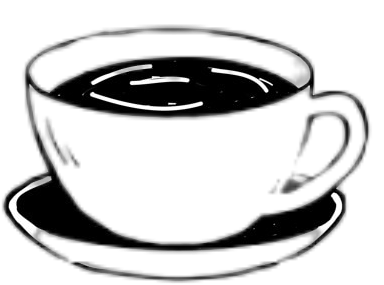
As someone who grew up in a predominantly Mormon community, I’ve often encountered the question, “Why can’t Mormons drink coffee?” This seemingly simple query opens the door to a complex conversation about culture, religion, and personal choices. In this article, I will delve into the reasons behind this prohibition, sharing personal experiences and insights that have shaped my understanding of this fascinating topic.
The prohibition of coffee among Mormons, or members of The Church of Jesus Christ of Latter-day Saints (LDS), is rooted in the Word of Wisdom, a health code revealed to Joseph Smith, the founder of the LDS Church, in 1833. This revelation discourages the consumption of certain substances, including alcohol, tobacco, and hot drinks, which early church leaders interpreted as coffee and tea. For many Mormons, adhering to this guideline is a significant part of their faith and lifestyle.
The Cultural Context of Coffee in the LDS Community
Growing up in a Mormon household, coffee was simply not part of our lives. Family gatherings, social events, and even meetings at church were often devoid of the rich aroma of brewing coffee. Instead, we enjoyed herbal teas and other beverages that aligned with our faith’s teachings. For me, it was never about the taste of coffee or the morning ritual that so many people seem to cherish; it was about belonging to a community with shared values and beliefs.
However, as I grew older and ventured into the world beyond my immediate community, I encountered many individuals who were perplexed by this tradition. They would ask, “How do you stay awake during long study sessions?” or “What do you drink in the morning?” To them, coffee was more than just a drink; it was a social lubricant, a cultural touchstone that fostered connections and conversations.
Exploring Alternatives to Coffee
While I may not indulge in coffee, I have discovered an array of alternatives that not only satisfy my caffeine cravings but also align with my lifestyle. One of my personal favorites is matcha. This finely ground green tea powder offers a vibrant energy boost without the jitters often associated with coffee. The preparation ritual, from whisking the matcha to savoring its earthy flavor, has become a delightful part of my daily routine.
Another option I’ve come to appreciate is herbal chai. The warm spices and rich flavors create a comforting beverage that feels indulgent without straying from my beliefs. Moreover, I’ve enjoyed experimenting with different herbal blends, incorporating ingredients like ginger, turmeric, and cardamom, which not only provide a unique taste but also come with various health benefits.
Social Situations and the Coffee Dilemma
Navigating social situations can be particularly interesting as a non-coffee drinker in a predominantly coffee-drinking society. I vividly recall attending a friend’s brunch where coffee flowed freely. As the barista prepared lattes and cappuccinos, I felt slightly out of place, holding my cup of herbal tea. However, I soon found that this difference sparked engaging conversations about my faith and choices.
Many friends were genuinely curious about why I chose not to drink coffee, prompting discussions that often led to deeper understanding and respect for differing lifestyles. These interactions highlighted that while coffee may serve as a bridge for some, the conversations it initiates can be just as valuable.
Personal Experiences and Insights
Through my experiences, I have come to appreciate the diversity of beverage choices available. Each alternative has its own unique properties, flavors, and cultural significance. For example, when I was studying abroad, I discovered yerba mate, a traditional South American drink. Its preparation involved a social aspect, much like coffee, where friends would share a gourd and enjoy the drink together. This experience allowed me to connect with locals, transcending the cultural barriers of coffee consumption.
Moreover, I have learned to value mindfulness in my beverage choices. Whether it’s savoring a cup of herbal tea in the morning or enjoying a refreshing glass of iced matcha on a hot day, each drink serves as a moment of reflection and connection to my beliefs. This conscious choice has made my daily routine more intentional and meaningful.
Health Benefits of Alternative Beverages
One of the most significant advantages of opting for non-coffee beverages is the variety of health benefits they offer. For instance, matcha is rich in antioxidants, which help combat oxidative stress in the body. It also contains L-theanine, an amino acid that promotes a sense of calm and focus, making it an excellent choice for studying or working on creative projects.
Herbal teas, too, come with their own set of benefits. Depending on the blend, they can aid digestion, boost the immune system, or provide relaxation. For example, chamomile tea is well-known for its calming properties, making it a great choice before bedtime. By exploring these alternatives, I’ve not only found delicious drinks but also embraced a more holistic approach to my health.
The Spiritual Aspect of Choices
For many Mormons, the choice to abstain from coffee extends beyond health; it is a spiritual commitment. The Word of Wisdom is seen as a guide for living a healthy and fulfilling life. This perspective has shaped my understanding of personal choices, reinforcing the idea that what we consume can influence our spiritual well-being.
Participating in community activities where coffee is present has also provided me with an opportunity to share my beliefs in a respectful manner. Instead of viewing my choice as a limitation, I embrace it as a chance to educate others about the reasons behind it. This dialogue often leads to mutual respect, allowing for greater understanding of differing lifestyles.
Finding Common Ground
One of the most rewarding aspects of discussing coffee within a Mormon context is finding common ground with coffee drinkers. While we may differ in our beverage choices, we share many values, such as the importance of family, community, and respect for one another's beliefs. These conversations have taught me that differences can be celebrated, fostering a richer tapestry of human experience.
When I attend gatherings where coffee is served, I often bring along my own beverages to share. This not only allows me to participate fully but also introduces others to the delights of herbal teas and other non-coffee options. In doing so, I aim to create a more inclusive atmosphere where everyone feels welcome, regardless of their drink of choice.
Product Review Conclusion
In conclusion, the question “Why can’t Mormons drink coffee?” encapsulates a rich tapestry of culture, faith, and personal choice. My journey through the world of non-coffee beverages has not only expanded my palate but also deepened my understanding of my beliefs. By exploring alternatives like matcha and herbal teas, I have discovered not just satisfying drinks but also meaningful connections and conversations.
Choosing to forgo coffee has shaped my experiences in ways I could not have anticipated. It has led me to embrace mindfulness in my choices, connect with others on a deeper level, and foster an appreciation for the diverse cultural significance of beverages worldwide.
Frequently Asked Questions about Why Can't Mormons Drink Coffee
Q: Why do Mormons avoid coffee?
A: Mormons avoid coffee primarily due to the Word of Wisdom, a health guideline revealed to Joseph Smith, which discourages the consumption of hot drinks, interpreted as coffee and tea.
Q: What are some alternatives to coffee for Mormons?
A: Some popular alternatives include herbal teas, matcha, and yerba mate, each offering unique flavors and health benefits without violating dietary guidelines.
Q: How do Mormons socialize without coffee?
A: Mormons often socialize with alternative beverages, like herbal teas or fruit juices, and engage in meaningful conversations that foster understanding and connection.
Q: Are there health benefits to non-coffee beverages?
A: Yes, many non-coffee beverages, such as matcha and herbal teas, offer health benefits like antioxidants, improved digestion, and relaxation properties.
Q: How can I learn more about the Mormon perspective on coffee?
A: Engaging in conversations with members of the LDS community, attending church events, or reading about the Word of Wisdom can provide deeper insights into the Mormon perspective on coffee and dietary choices.
